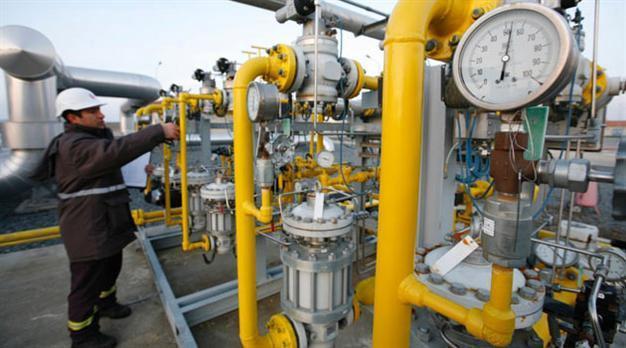Turkey and Iraq meet in UK to talk energy, security

Hürriyet photo
The sequence of developments in the Middle East is very interesting to observe. On March 22, Israel apologized to Turkey nearly three years after its fatal Mavi Marmara attack killing nine Turkish citizens. The apology came after the serious and intensive mediation of the United States, which did not hide its frustration at the row between its two closest allies, especially at a time when the entire region is at risk of spillover of the fire in Syria.On March 24, U.S. Secretary of State John Kerry paid a snap visit to Iraq. He held extensive meetings with Iraqi officials, with particular emphasis on the increasingly deteriorated relations between Ankara and Baghdad. Turkey’s insistence on pursuing lucrative energy deals with the northern Iraqi administration, at the expense of angering the central government, has pushed Washington to seek ways to mediate between the two. The move came from Iraqi Prime Minister Nouri al-Maliki on April 5. In a statement posted on his official website, he said he would welcome rapprochement with Turkey “on the basis of shared interests, mutual respect and good-neighborliness”.
On April 7, Kerry paid his second visit to Turkey in less than a month. Just a day after Kerry’s meeting with Foreign Minister Ahmet Davutoğlu and Prime Minister Recep Tayyip Erdoğan in Istanbul, the Hürriyet Daily News learned that a delegation led by Feridun Sinirlioğlu, undersecretary of the Foreign Ministry, met Iraqi National Security Advisor Faleh al-Fayyadh in London on April 8. U.S. deputy secretary William Burns, who was in London for the G-8 meetings, also held separate talks with both sides in an attempt to encourage them further.
(In fact, the first attempt for dialogue was taken by al-Maliki, who requested an appointment with President Abdullah Gül when both men were in Cairo for an international summit early in February. Gül canceled his meeting with al-Maliki at the last minute, after the latter’s critical remarks about Turkey appeared in a Lebanese newspaper.)
“We have proposed to work together with the Iraqi side on energy issues. We have made clear to them that we have no intention of dividing Iraq,” Turkish diplomatic sources familiar with the talks informed the Hürriyet Daily News on Tuesday. It was the Iraqi side who demanded to meet, the sources added, describing the talks as “technical.”
“We conveyed two main messages on power sharing and revenue sharing: The territorial integrity and political unity of Iraq are very important for us. It’s also important that the government concludes the long-awaited hydrocarbon law. On both, it is the al-Maliki government that should take the initiative,” sources stressed.
The Turkish side repeated its proposal for building additional pipelines in order to transport Iraqi oil and natural gas to world markets through its Ceyhan port. “We are ready and open to any proposal that would allow all parties in Iraq to benefit. We believe that this will cement Iraq’s stability,” they underlined.
The Daily News also learned that both parties have agreed to continue dialogue, despite having differences on many issues. Al-Maliki’s attacks against leading Sunni politicians, which caused the expulsion of former Vice President Tariq al-Hashimi, who has sought refuge in Turkey since 2011, are one of the most important reasons for the tension between Ankara and Baghdad. The Iraqi Prime Minister also recently targeted Finance Minister Rafaie al-Issawi, another senior Sunni politician, who had to step down on March 1.
Ankara believes that court cases opened against Sunni politicians are purely political and initiated upon the direct order of al-Maliki. On the other hand, al-Maliki believes that Turkey is using all its cards to weaken his power.
Washington’s role is to eradicate this mutual mistrust between the two and to start a process of normalization, as it did between Turkey and Israel. The normalization of Turkey’s relations with both Israel and Iraq are of vital importance of the U.S. given its preoccupation with Iran and Syria. Among many others, these two processes have a specific objective. With plans to shift to a harder policy on Syria, Washington wants to be sure that the region is cleared of bilateral disputes between key actors. As the core group of the Friends of the Syrian People is set to meet on Saturday in Istanbul with the idea of increasing logistical assistance to the Free Syrian Army, the timing of Iraqi-Turkish reconciliation has gained more importance.











